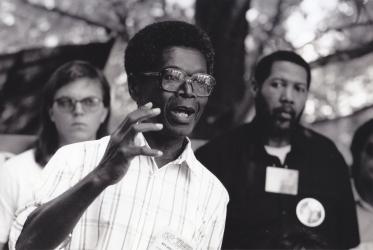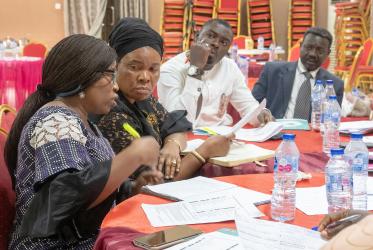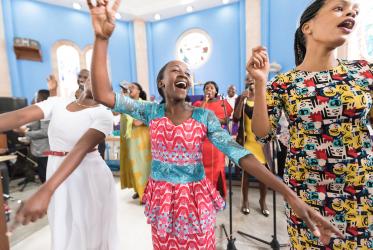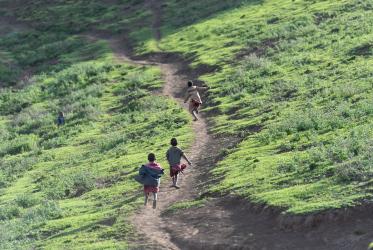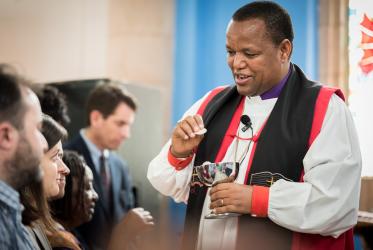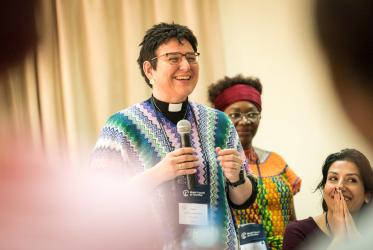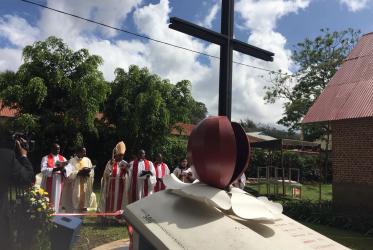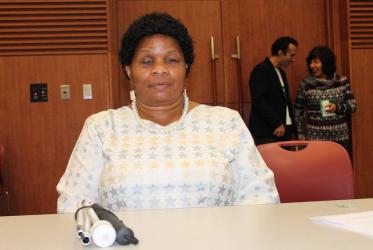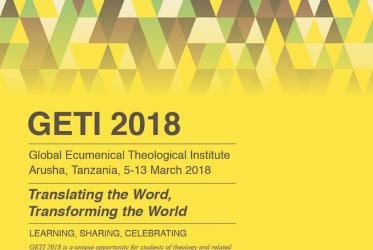Displaying 1 - 20 of 20
01 February 2024
How will the Arusha Call change the world?
20 May 2019
An advocate for family values, called by God
26 March 2018
Arusha offers vibrant and colourful worship life
12 March 2018
Indigenous youth want their voices heard
08 March 2018
Women reflect on mission as foundation of life
07 March 2018
WCC joins Tanzanian service observing Reformation anniversary
03 November 2017
East African communities discuss disability, theology
17 November 2016

